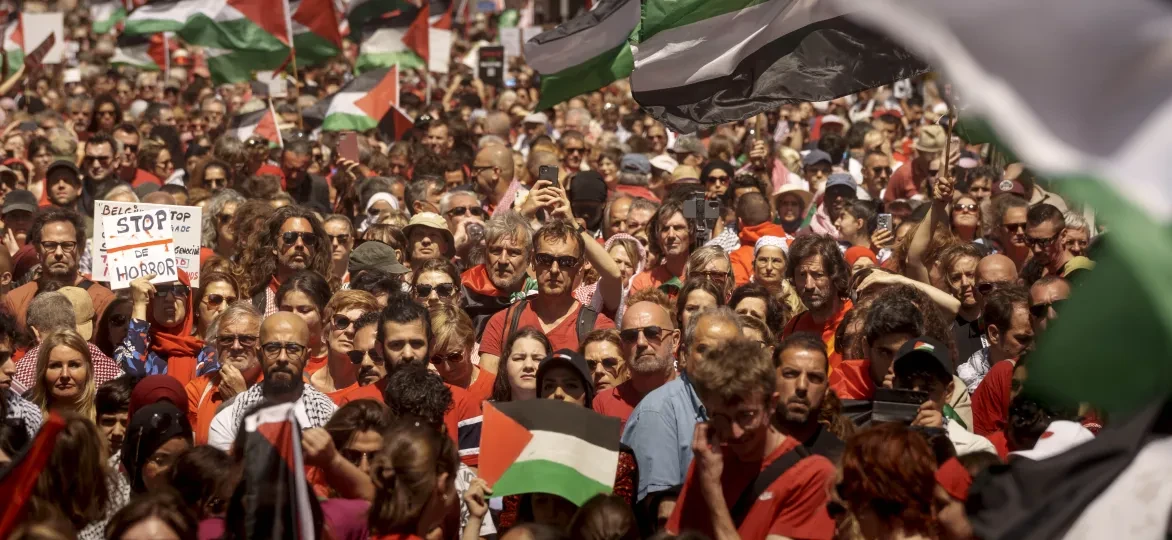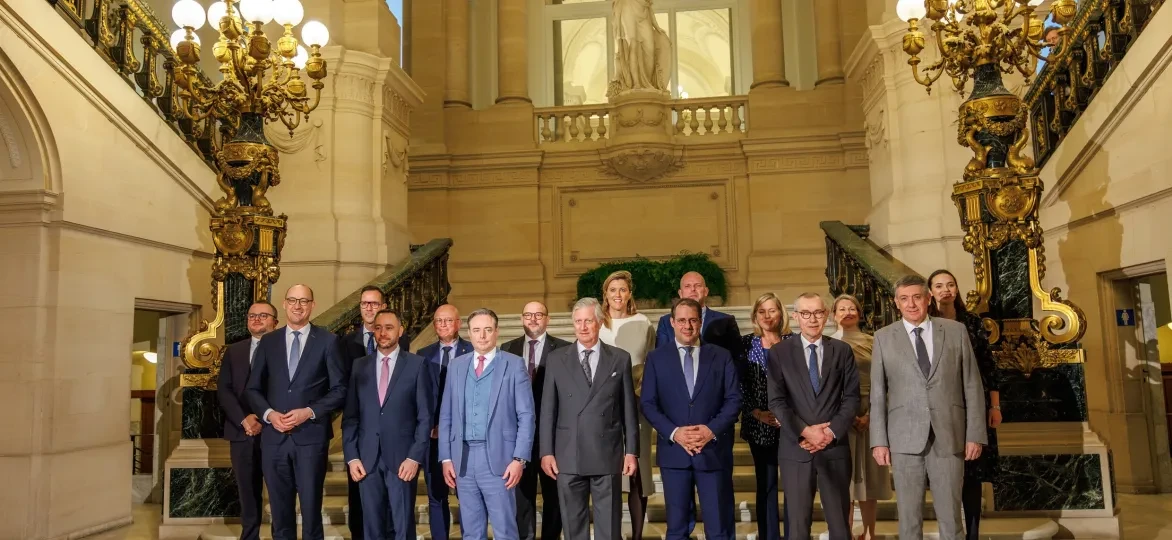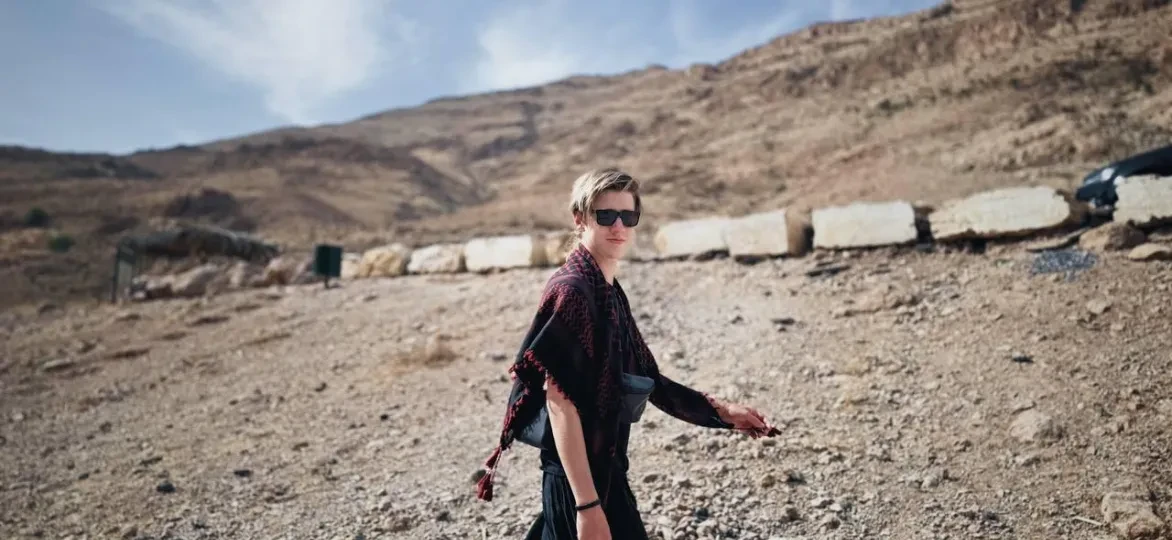How Al-Haq has been fighting for human rights in Palestine for years
January 17, 2024
5 minutes
While all eyes are on Gaza, violence is also increasing in the occupied West Bank. The Palestinian human rights organization and 11.11.11-partner Al-Haq has been advocating for human rights and the rule of law in the occupied Palestinian territory since 1979. “Israel bans our existence, but we persevere. We continue to fight for the rights of Palestinians.”
In an anonymous interview, an employee of the organization talks about the many human rights violations, the challenging working conditions and their international policy work.
How do you protect the rights of the Palestinian people?
We monitor and document human rights violations and advocate before national and international bodies to end these violations. In doing so, we urge you to to hold offenders accountableWe also put pressure on policy to bring legislation into line with international law. We are a UN-recognized organization and have received several awards for our work, including the Human Rights Prize of the French Republic in 2018 and the Austrian Bruno Kreisky Prize in 2022.
Interesting fact: We were founded in 1979, making us the oldest human rights organization in the Middle East.
How would you describe the current situation of people in the Occupied Palestinian Territories, given recent escalations?
Just as several UN experts do: "apocalyptic". 2023 was the deadliest year for Palestinians, with more casualties than at any time since 1948. Even before October 7, the Israeli army killed 35 Palestinians in the Gaza Strip. Since October 7, the Israeli attacks have claimed nearly 25.000 lives, of which approximately 70 percent are women and children. More than 60 percent of all homes in Gaza have been destroyed or damaged, and approximately 85 percent of the population has been displaced.
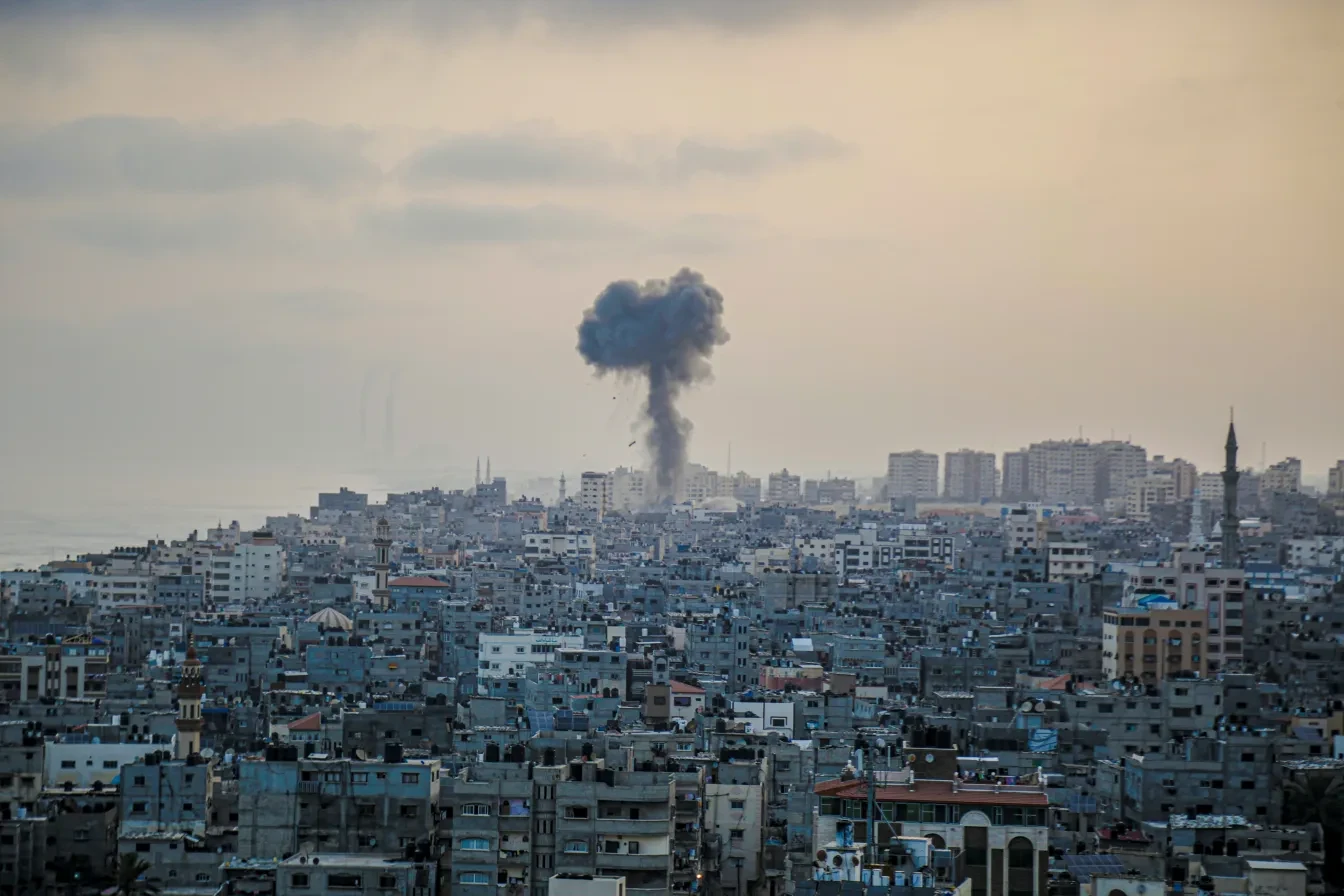
The Israeli military is carrying out widespread, systematic, deliberate and indiscriminate attacks against the civilian population and everything that sustains life in Gaza. denies access to basic necessities such as water, medicine and humanitarian aid, and uses illegal substances, such as phosphorus and collective punishment, to wage war.
The purpose behind these crimes is evident from statements made by senior Israeli military and political officials: to destroy the Palestinian people as a group, in whole or in part. Genocide thus, or the most heinous crime under international law.
But while the eyes of the world are on Gaza, violence in the West Bank, including East Jerusalem, is also increasing. Even before October 7, the Israeli army and settlers killed 203 Palestinians there, and since October 7, another 329 others. The population living there is subjected to intense violence, killings, house demolitions, arrests, collective punishment, forced displacement and other violations.
Many Palestinians describe the horrors they are now experiencing as "reliving the Nakba". This refers to the 1948-1948 disaster in which thousands of Palestinians were slaughtered and expelled, leading to the creation of the state of Israel.
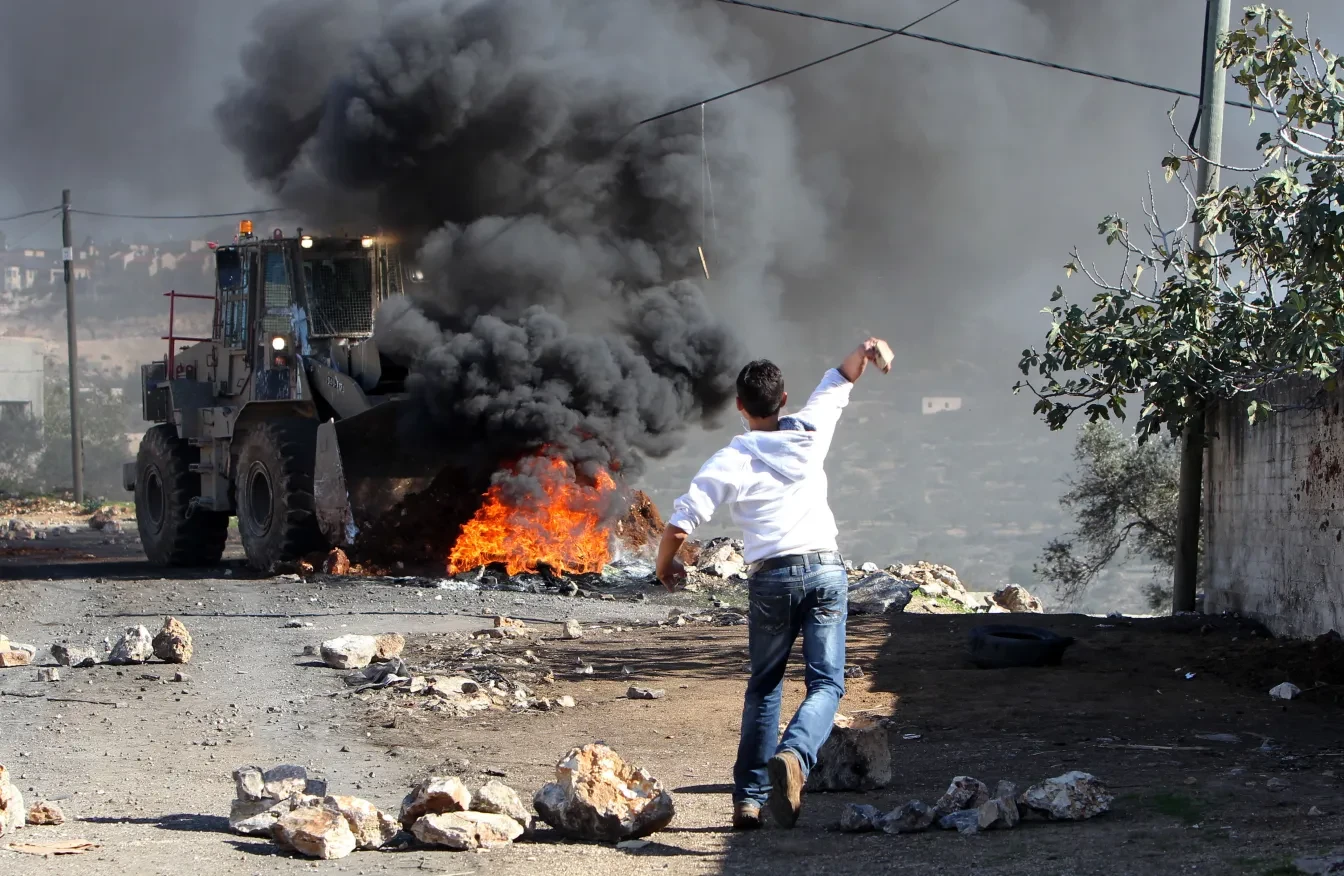
What challenges and violations do Palestinians face?
For over 75 years, Palestinians have been subjected to a Israeli apartheid regime, colonialism, and a 56 year long illegal occupation.
The population is confronted with numerous violations, including mass killings, arbitrary arrests, torture, forced displacement, destruction of property, ethnic cleansing and more. Israel thus continually violates international law and denies the right to self-governance in Palestine.
One of the main challenges is that the international community denies and fails to address the root causes of the violence (apartheid, colonialism and illegal occupation), as well as the international failure to stop Israeli settlements, their expansion and trade with them.
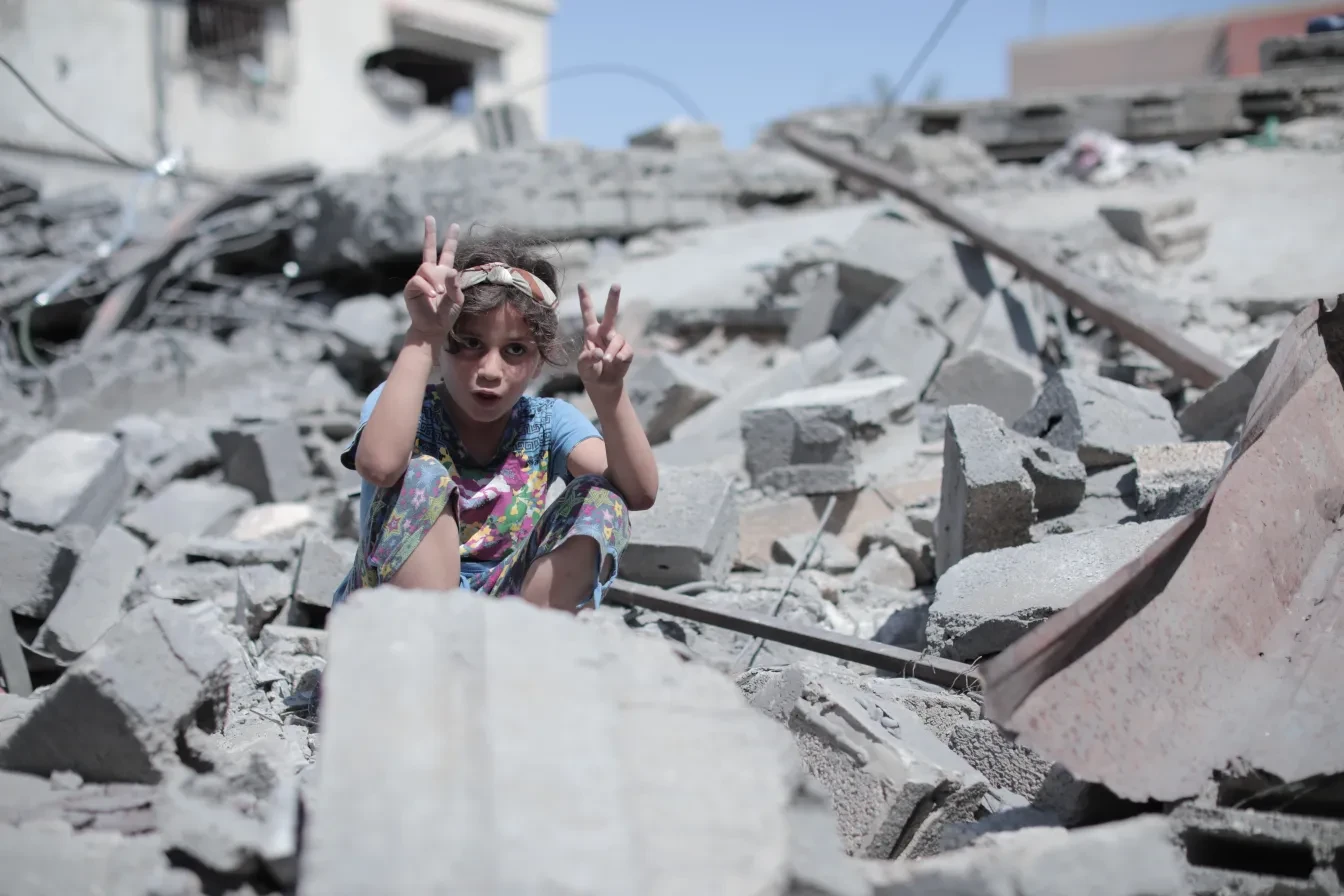
Are there any challenges that hamper Al-Haq's work?
Certainly, the oppression has consequences for the entire civil society, including our organization. Israel even illegally banned our organization, and five other social organizations, banned and some offices closed.
But also the war in Gaza puts our own employees at risk. They too have been displaced from their homes, have no water or electricity, and have lost family members. For the first time in our history, we can no longer report daily on human rights violations in the Gaza Strip. In the West Bank, too, increasing violence and tighter restrictions on movement are making our work more difficult. Despite these obstacles, we continue to fight for human rights.
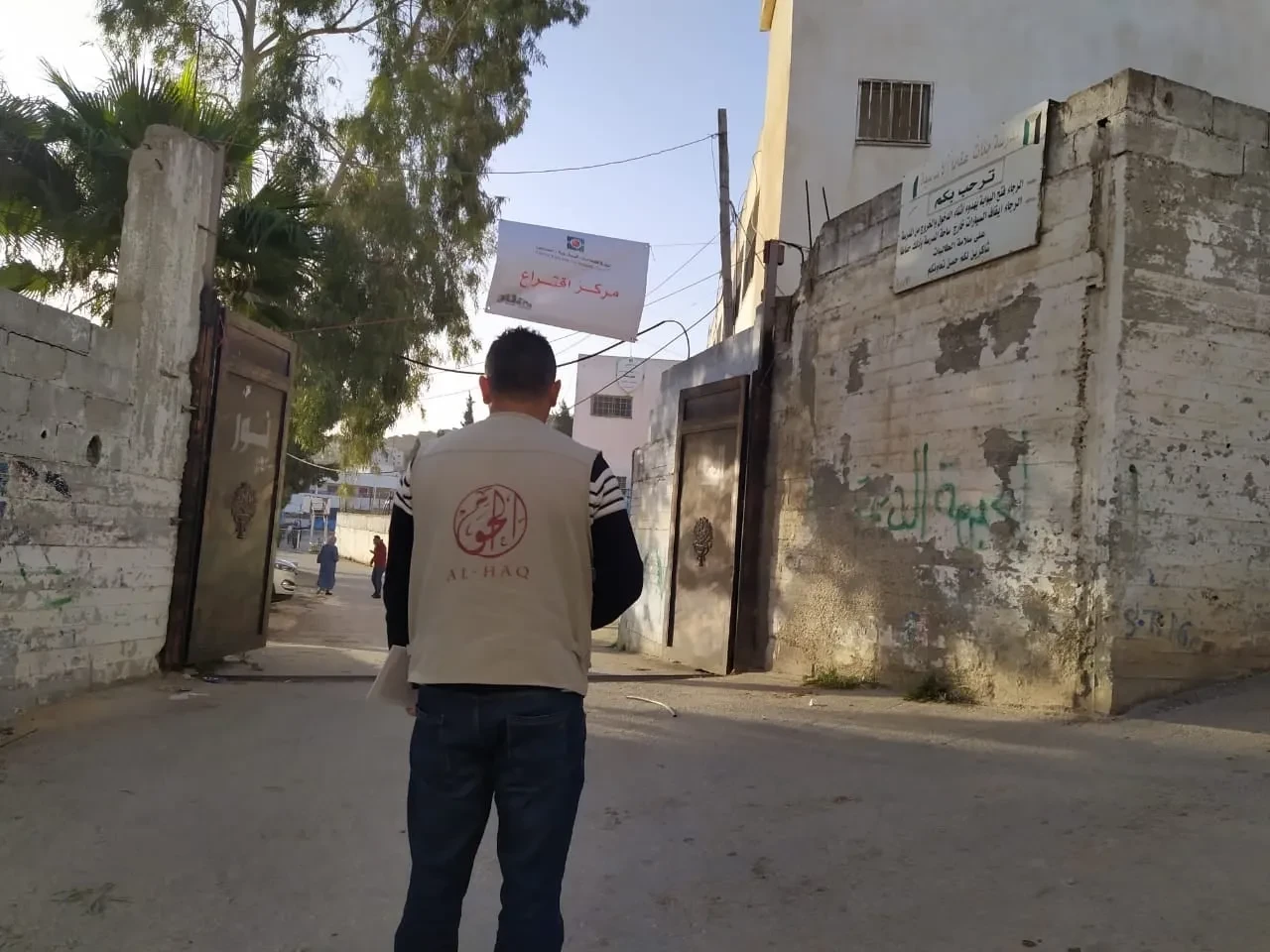
How do you work with local communities to understand their needs?
Our field researchers monitor daily violations of Palestinian human rights, document testimonies and communicate with victims, their relatives and eyewitnesses.
We offer training courses on international law, where we also focus in particular on young people to prepare the next generation of human rights activists. To make the whole world aware of the situation in Palestine, we also organize visits for parliamentarians and students, among others, where they meet Palestinians and share stories.
How do you exert international pressure?
We do this in a number of ways. We produce comprehensive reports on the situation on the ground, disseminate media campaigns and testimonies to raise public awareness, and meet with international human rights defenders and experts on international law.
Also we work together with countries worldwide and with various UN bodies, including the UN Human Rights Council.
In addition, we are also working closely with two other NGOs in Gaza to submit written statements to the International Criminal Court (ICC) in The Hague about crimes committed by Israeli leaders. We are also pressure on agencies and countries to further investigate and prosecute these international war crimes. Successfully, because South Africa has filed a genocide complaint with the International Court of Justice (ICJ) in The Hague, with the support of many countries including Namibia, Pakistan, Jordan, Turkey, Bolivia, Brazil and more.
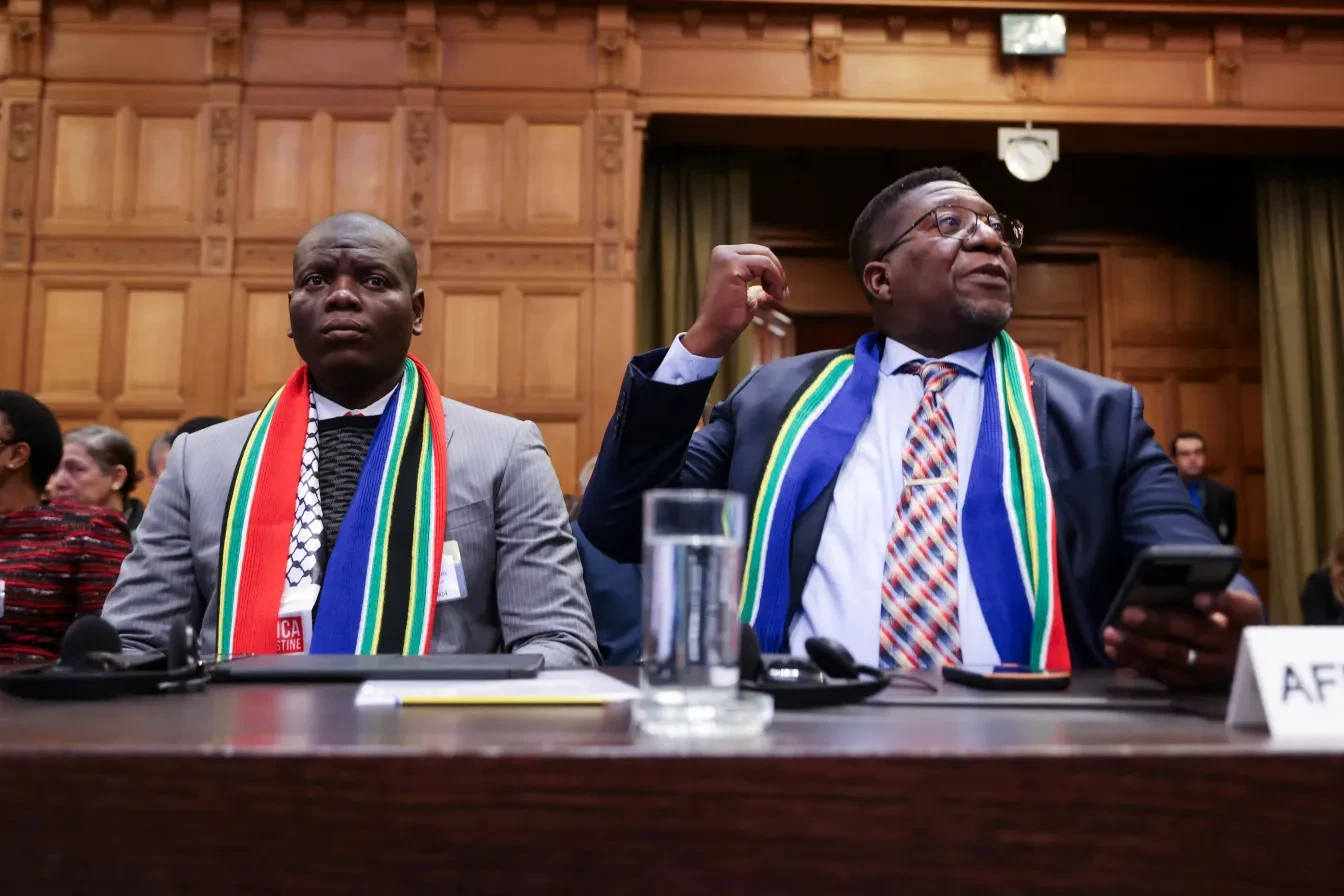
How can the international community better support the work of Al-Haq and similar organizations?
Recognition of the underlying causes of the Palestinian struggle, being the colonial apartheid regime and the occupation by Israel, are crucial in the first place. And then stopping it.
The international community can do this by imposing economic sanctions on Israel, severing diplomatic and trade ties, and pushing for justice.
An important goal in our work is ending Israel's long-standing impunity. For this, countries must take responsibility. Other states are obliged to prevent and punish violations of international law. To give an example: Countries that support South Africa's genocide charges against Israel send an important signal. We call on countries to do everything they can to to prevent more crimes: end military assistance, take measures against years of occupation and ethnic cleansing, and call for a ceasefire.
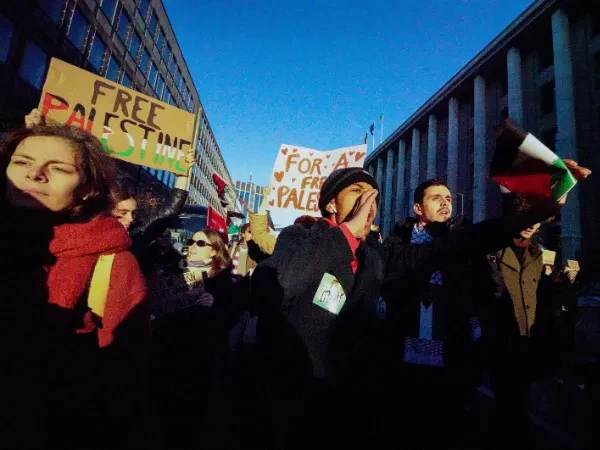
Header photo: Palestinians are left in ruins after an Israeli bombardment. © Ibraheem Abu Mustafa via Reuters
11.11.11 works closely with organizations such as Al-Haq. Since 1979, they have been documenting human rights violations and collecting evidence of violations of international law in Gaza and the West Bank. The organization plays a key role in gathering evidence for international courts and denouncing impunity.

